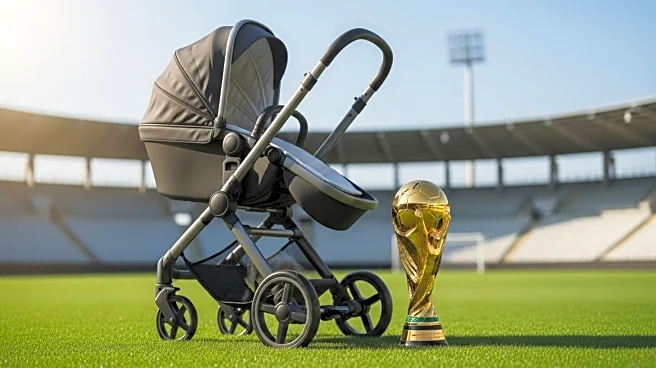What's Happening?
Sam Kerr, a prominent player for Chelsea Women, has opened up about her experiences with motherhood and how it has shifted her perspective on life beyond football. In a recent interview, Kerr shared insights into how stepping away from the game has allowed her to discover new dimensions of life, emphasizing the importance of family and personal growth. Her reflections come at a time when she continues to balance her professional career with her personal life, offering a candid look into the challenges and rewards of being a professional athlete and a mother.
Why It's Important?
Sam Kerr's revelations highlight the evolving narrative around athletes and their personal lives, particularly for women in sports. Her story underscores the importance of mental health and personal fulfillment, which are increasingly recognized as vital components of an athlete's career. Kerr's experience may inspire other athletes to prioritize their well-being and family life, potentially influencing sports organizations to offer more support for athletes managing personal and professional responsibilities. This shift could lead to broader discussions on work-life balance in sports, impacting policies and practices within the industry.
What's Next?
As Sam Kerr continues to navigate her dual roles, her journey may prompt sports organizations to reevaluate their support systems for athletes. This could include enhanced maternity policies, mental health resources, and flexible scheduling to accommodate family needs. Kerr's influence might also encourage other athletes to share their stories, fostering a more inclusive and supportive environment in sports. Stakeholders such as team managers, sports psychologists, and policy makers may engage in discussions to address these evolving needs.
Beyond the Headlines
Kerr's story also touches on broader cultural shifts regarding gender roles and expectations in sports. Her openness about motherhood challenges traditional views of female athletes, potentially paving the way for greater acceptance and support for women balancing family and career. This could lead to long-term changes in how female athletes are perceived and supported, influencing societal attitudes towards gender equality in sports.









